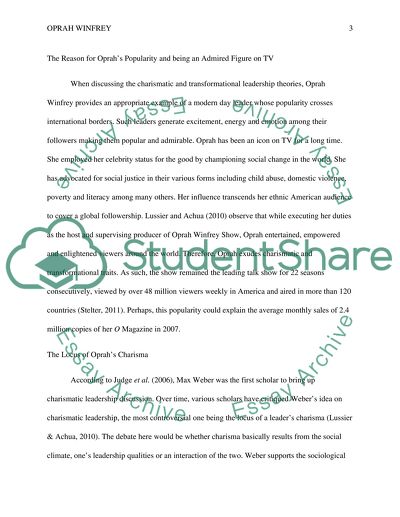Cite this document
(“Oprah Winfrey A Modern Leader Research Paper Example | Topics and Well Written Essays - 2500 words”, n.d.)
Retrieved from https://studentshare.org/psychology/1475537-oprah-winfrey-a-modern-leader
Retrieved from https://studentshare.org/psychology/1475537-oprah-winfrey-a-modern-leader
(Oprah Winfrey A Modern Leader Research Paper Example | Topics and Well Written Essays - 2500 Words)
https://studentshare.org/psychology/1475537-oprah-winfrey-a-modern-leader.
https://studentshare.org/psychology/1475537-oprah-winfrey-a-modern-leader.
“Oprah Winfrey A Modern Leader Research Paper Example | Topics and Well Written Essays - 2500 Words”, n.d. https://studentshare.org/psychology/1475537-oprah-winfrey-a-modern-leader.


